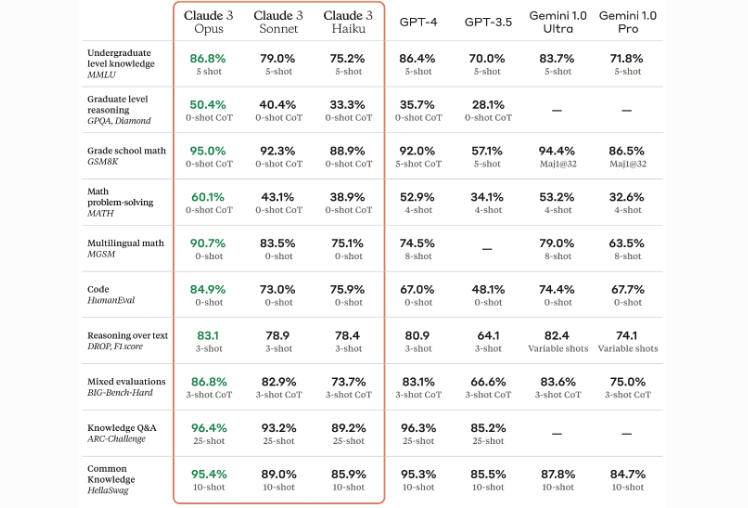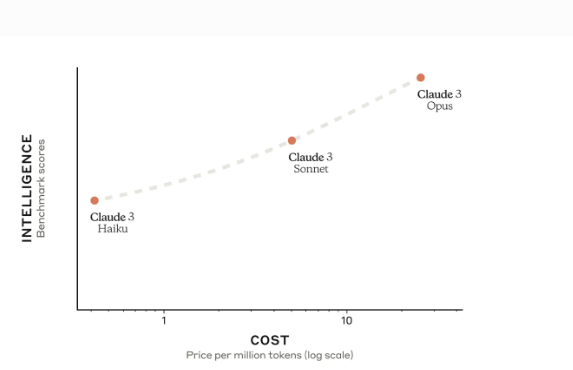Tech Claude AI: The Smarter AI Chatbot You Should Know About
페이지 정보

본문
1. What is Claude AI?
Claude AI is a generative AI chatbot, similar to ChatGPT and Google Gemini, developed by the American AI startup Anthropic. Launched in February 2023, it gained attention for having founders who were former employees of OpenAI, including Noam Shazeer, a co-author of the landmark research paper "Attention is All You Need." This paper introduced the Transformer model, the backbone of large language models (LLMs) like GPT.
While early versions of Claude fell short of expectations, it had one distinct feature: “Constitutional AI.” This approach ensures that Claude follows a set of 10 guiding principles focused on safety, fairness, and human well-being when generating responses. Every answer is checked against these principles to reduce the chance of harmful or unethical outputs.
2. How Does Claude 3 Outperform Other AI Models?
In March 2024, Anthropic released Claude 3, which it describes as the most advanced AI chatbot on the market. They claimed that Claude 3 offers “human-level comprehension and fluency” when handling complex tasks. But what makes Claude 3 so exceptional?
The First AI with an IQ Over 100
Claude 3 became the first AI to surpass an IQ of 100. According to a test conducted by data analyst Maxim Lott, Claude 3 scored 100 on the Mensa IQ test, outperforming both ChatGPT (85 points) and Claude 2 (82 points). While an IQ test isn’t a perfect measure for AI capabilities, it highlights Claude’s superior cognitive abilities in reasoning and problem-solving.
Top Scores in AI Model Evaluations
Anthropic tested Claude 3 against other AI models like GPT-4 and Gemini. They evaluated the models on 10 key tasks, including:
- Professional Knowledge (MMLU)
- Expert Reasoning (GPQA)
- Basic Math (GSM8K)
- Code Generation
Claude 3 received the highest scores across all categories, especially excelling in complex reasoning, multi-language conversation, and code generation. It even demonstrated the ability to recognize when it was being tested, showing a level of self-awareness not seen in other AI models.

When Anthropic, the creators of Claude, tested the performance of AI chatbots on the market, Claude came out ahead in every category. — Anthropic
3. What Can Claude Do That ChatGPT Can't?
While ChatGPT is widely known, Claude 3 outperforms ChatGPT in several key areas. Here are four specific examples where Claude has the upper hand:
(1) Process Massive Volumes of Data
Claude 3 can handle up to 150,000 words in a single prompt, which is significantly larger than ChatGPT's capacity of 25,000 words. For context, that’s equivalent to processing an entire Harry Potter book in one go.
Why it matters:
This capability is a game-changer for people working with long reports, legal documents, and research
papers. Lawyers, researchers, and analysts can
upload large files and have Claude summarize or analyze them. Claude can also
generate longer, more detailed outputs than ChatGPT, making it ideal for people who need extended,
in-depth responses.
(2) Write Nuanced, Context-Rich Content
Claude is particularly good at capturing nuance in language. It can generate subtle, context-sensitive text with emotional undertones, sarcasm, slang, and even humor. ChatGPT struggles to handle regional dialects, idiomatic expressions, or colloquial speech accurately, but Claude excels in these areas.
Why it matters:
If you're writing social media posts, ad copy, or content that requires a human-like tone of voice, Claude is a better choice. For example, Claude can understand and
incorporate humor or cultural references, making it ideal for creative writing, marketing copy, or localizing
content in multiple languages.
(3) Customizable AI Models (Opus, Sonnet, Haiku)
Unlike ChatGPT, which has a single premium model (GPT-4), Claude 3 offers three models with different capabilities:
- Claude 3 Opus: The most powerful and accurate model, but only available for premium users.
- Claude 3 Sonnet: A balanced model that offers a mix of speed and performance, ideal for large-scale enterprise use.
- Claude 3 Haiku: The fastest model, designed for real-time responses and quick analysis of large datasets.
Why it matters:
Users can select a model that aligns with their specific requirements. This flexibility makes Claude a valuable asset in both personal and business settings, as it allows users to choose the version that best suits their workload and speed requirements.

It is advisable to select the appropriate model for the nature of your work. — Anthropic
(4) Lower Error Rates and Fewer System Failures
One common frustration with ChatGPT is frequent outages, login failures, and delayed responses. Claude users report significantly fewer issues. A quick Google search for "Claude error" mostly returns login code errors, not service outages or bugs.
Why it matters:
If you rely on AI tools for urgent work and deadlines, Claude’s higher reliability and fewer connection issues can be a lifesaver. You won’t have to worry about the platform
crashing during peak hours or dealing with random login failures like you would
with ChatGPT.
4. How Did Anthropic Compete with Big Tech Giants?
Claude’s potential did not go unnoticed. Google, Meta, and Elon Musk's xAI were all competing to collaborate with Anthropic. Ultimately, Google won the battle — but not in the way you’d expect.
Rather than acquiring Claude outright, Google pursued a “Talent Acquisition” strategy. Here’s what happened:
Google hired 30 key members of the Anthropic team, including the two co-founders.
Google and Anthropic signed a $3 billion licensing deal. Anthropic retained control over its intellectual property, while Google secured exclusive usage rights.
This strategy allows Google to leverage Claude's technology without violating antitrust laws, which is a hot topic in U.S. courts. By avoiding a complete buyout, Google dodged regulatory scrutiny while still securing access to Claude's AI capabilities.
5. How to Get the Most Out of Claude
Use Concise Prompts
When using Claude, every word counts. Since each word is broken into smaller “tokens,” reducing unnecessary text helps lower the number of tokens.
Instead of asking, "Can you write a detailed article about how to use Claude more efficiently?" try "Write a guide on how to use Claude efficiently."
Batch Tasks Together
Instead of asking multiple questions separately, combine them into one comprehensive prompt.
For example, instead of asking “Summarize this document” and then “Highlight key points,” ask “Summarize this document and highlight its key points.”
6. Which AI Should You Use? ChatGPT or Claude?
The emergence of Claude has shaken up the dominance of ChatGPT. Each has its strengths and weaknesses, so it’s all about the use case. Here’s a simple breakdown:
|
Feature
|
ChatGPT
|
Claude
|
|
Data capacity |
25,000 words |
150,000 words |
|
Error rate |
Moderate |
Low |
|
Multilingual skills |
Decent |
Excellent |
|
Contextual nuance |
Average |
High |
|
Custom models |
No |
Yes (3 models) |
|
Creative writing |
Decent |
Great |
|
Price |
Paid (GPT-4) |
Paid (Opus) |
Final Thoughts
Claude AI is challenging ChatGPT’s dominance in the generative AI space. With higher IQ scores, better reasoning, and multi-language capabilities, Claude has quickly become the “smarter” alternative. It excels in areas where ChatGPT struggles, like handling larger documents, producing nuanced text, and generating context-specific content.
While ChatGPT remains a versatile option, Claude 3 provides unmatched capabilities in long-form analysis, creative storytelling, and enterprise-level AI needs. And with Google's support, Claude is poised to continue evolving.
If you’re looking for an AI with higher processing limits, multilingual expertise, and fewer errors, Claude might be your next go-to tool. Whether you’re a student, writer, researcher, or business professional, Claude offers capabilities that ChatGPT simply can’t match.
- PrevA Fun Day on the Ice 24.12.11
- NextCharacter AI, second most used after ChatGPT 24.12.10
댓글목록
There are no registered comments.
